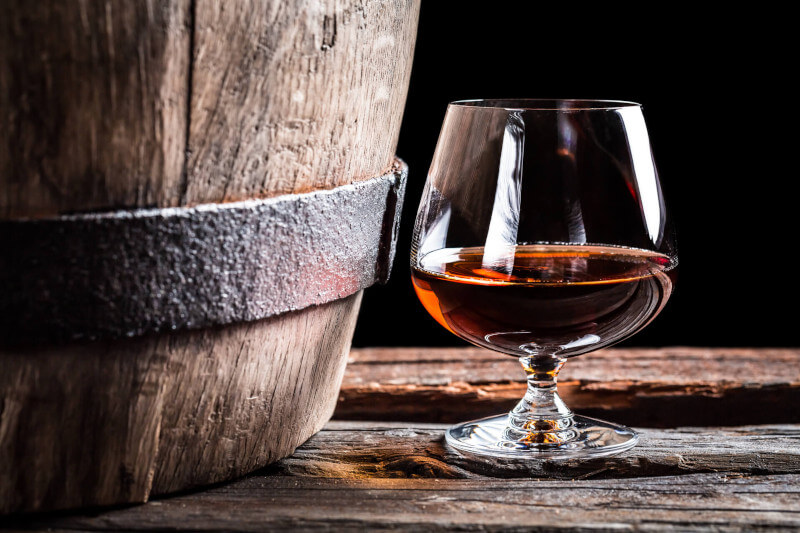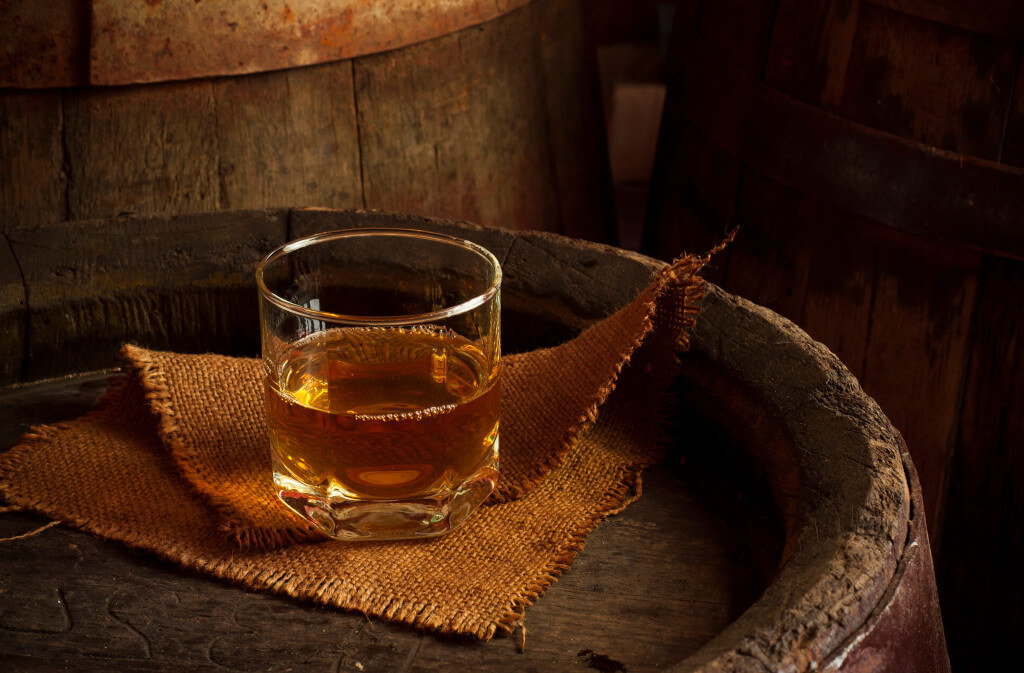Scotland’s windswept vistas are commonly conjured up when one envisions the resonant cadence of whisky manufacturing. But from the secluded parts of England and Wales comes a new and intriguing story. Distillers in this region are reviving historic practices and propelling an exciting development in the whisky industry.
The Complex Web of English Whisky
Looking back over the ages, we find that the origins of whisky production in England may be traced to the Middle Ages. But it declined in the centuries that followed, especially in the face of Scottish whisky’s mighty presence. The English whisky scene almost disappeared in the twentieth century.
The winds of change picked up speed in the latter part of the twentieth century. The English Whisky Co., which in 2006 established the St. George’s Distillery in Norfolk, was instrumental in this renaissance. After more than a century, the first authorized distillation of English whisky occurred with the opening of St. George’s. The current CEO, Andrew Nelstrop, has expressed his excitement about this trend, citing the growing popularity of English whiskies on store shelves and online.
The English whisky story is further enhanced by modern distilleries like The Lakes Distillery and East London Liquor Company. English whisky has risen to the forefront of the market thanks to its particular utilization of local grains, innovative maturing procedures, and variety of unique barrel finishes.
At the center of this discussion is English whisky, whose producers have benefited from relatively lax laws. They have been able to separate their spirits from the competition thanks to the latitude they have been given in choosing their cereals, distillation processes, and barrel variations.
The Rebirth of Welsh Whisky Wales is known for its beautiful scenery and extensive history, but the country also has a strong connection to whisky. However, this connection appeared to have weakened by the turn of the twentieth century. Frongoch, the last remaining distillery in Wales, closed its doors.
The wheels of Welsh whisky production, however, did turn as the centuries passed. This renaissance was marked by the opening of Penderyn Distillery in the breathtaking Brecon Beacons. The combination of their commitment to making high-quality single malt whisky and the novelty of their Faraday still caused a stir in the industry. Penderyn’s CEO, Stephen Davies, recalled the difficulties the company encountered in building a distinct Welsh whisky identity, but how their perseverance ultimately paid off by earning the praise of whisky experts.
In the spotlight today is Welsh whisky, which has recently received acclaim and whose originality is shielded by legislative protections against imitators.
The Differences Between English and Welsh Whisky

Whisky, at its core, is a reflection of the environment, the ingredients, and the people who make it. Because of their respective histories and geographical backgrounds, England and Wales, each have their take on this age-old virtue.
English Whisky
The revival of English whisky has resulted in an explosion of newly developed flavors and production methods. Different styles of whisky are developing in England because its distillers have greater creative leeway than their Scottish rivals.
While some English distilleries stick with the tried-and-true malted barley, others are branching out to try new grains like rye and wheat in their mash and spirit. Changes in the main component can result in a range of flavors, from mild and mellow to hot and smoky.
The weather in England, which is typically more temperate than that of the Scottish Highlands but more variable than that of the Lowlands, has an impact on how quickly people mature. A more continental environment, as found in places like Norfolk, can hasten maturation and alter the way the spirit interacts with the wood.
English whiskies typically have a flavor profile of bright fruitiness with a touch of cereal sweetness. Vanilla, oak, and floral overtones may also be present, however, their presence depends on the distillery.
Welsh Whisky
The misty mountains and sea winds of Wales provide a one-of-a-kind setting for whisky production, and the resulting qualities are exclusive to Welsh whisky. Malted barley is the primary grain used in mash and distillation at Penderyn and other Welsh distilleries. This creates a background of mildness in their whisky that allows for the expression of additional flavor flavors.
The constant rainfall and chilly air in Wales’ mild climate make for a continuous maturation process. A spirit with harmonious flavors is one possible outcome.
Welsh whiskies have a reputation for being mild and fruity in flavor. Many have aromas reminiscent of ripe apples, pears, and other tropical fruits. Whisky can be made more palatable for newbies and seasoned whisky consumers by employing innovative stills like the Faraday still at Penderyn.
The Ripple Effect
From the vantage point of a master distiller, the rise of English and Welsh whisky represents a fascinating evolution in the broader whisky narrative. These regions, having reintroduced themselves into the whisky industry after prolonged hiatuses, have not simply re-entered the scene, but have boldly redefined it.
Craftsmanship & Innovation: The freedoms enjoyed by English distillers, as pointed out in the article, have sparked a wellspring of creativity. By not being tethered to stringent regulations, English whisky makers have embraced the liberty to experiment with diverse cereals, innovative aging methods, and unique cask finishes. This spirit of experimentation has infused the industry with fresh approaches, prompting even seasoned producers worldwide to consider new techniques.
Similarly, Welsh distilleries have harnessed innovation, as seen with Penderyn’s adoption of the unique Faraday still. Such advancements are fine-tuning the distillation process and refining the final spirit’s character. Through these endeavors, Wales has set an industry precedent: the fusion of tradition with modern technology can yield exceptional results.
Rebranding and Market Perception: The entry of English and Welsh whiskies into the global market was not without its challenges. As the article highlights, earlier perceptions occasionally sidelined these spirits. However, with consistent quality and distinct character, these whiskies have reshaped market perspectives. Distilleries from these regions have demonstrated that excellence isn’t solely the domain of long-established whisky producers. They’ve underscored that with dedication, even emerging players can command respect and secure their spot on the global stage.
Collaboration Over Competition: One of the most heartening impacts has been the camaraderie shown by the broader whisky community. Instead of territorial defensiveness, the Scotch whisky industry has extended support to its English and Welsh counterparts. This sentiment of mutual growth, as highlighted by the exchanges between Lakes Distillery and Scotch producers, is refreshing. It underscores a universal truth – the whisky industry thrives best when it operates not as siloed entities, but as a collaborative community.
Championing Authenticity: Both English and Welsh distilleries have embodied the philosophy of staying true to their roots. It could be through locally sourced ingredients or capturing the essence of their landscapes, either way, these whiskies offer genuine experiences. They’ve underscored the industry-wide understanding that authenticity, rather than mimicry, is the pathway to a drinker’s heart and loyalty.
The International Role of English and Welsh Whisky

Today, whisky is made all over the world, not just in Scotland, Ireland, and Kentucky, where it was first made. Japan and Australia are two newer places that make whisky. Even though they are different, English and Welsh whiskies have gained a lot of fans in the UK and elsewhere.
Unlike many other industries, the Scottish whisky business has helped its English and Welsh competition. Dhavall Gandhi, a well-known person in the whisky business, talked about the ideals that the two regions have in common. He said that the whisky business is held together by a spirit of cooperation and friendship. Stephen Davies agreed. He thought about how wise people like the late Dr. Jim Swan had been.
Meet Danielle, an avid explorer of life’s intricacies, who immerses herself in the world of fashion at SEPH, strolls down the creative Sidewalk, and makes wise financial choices with SmartQuote.

